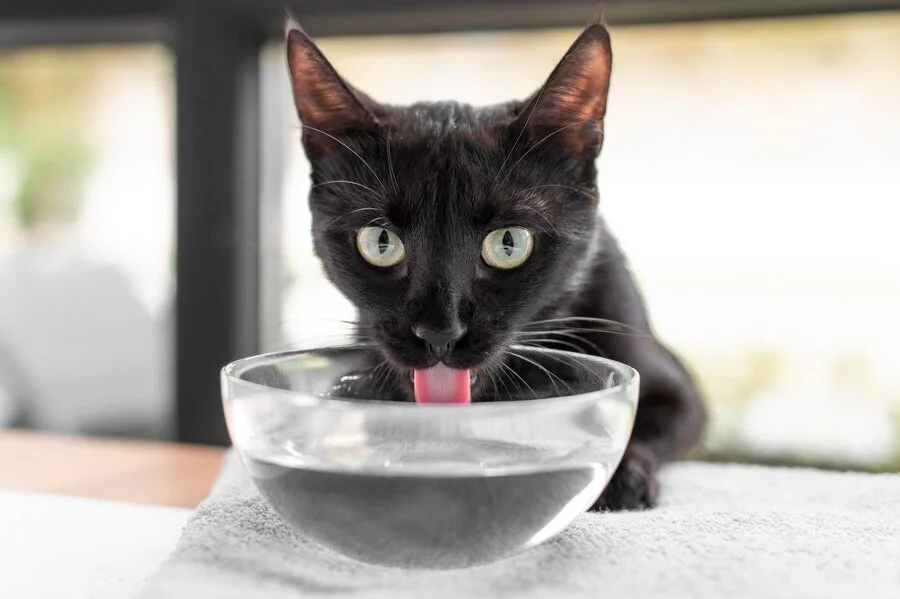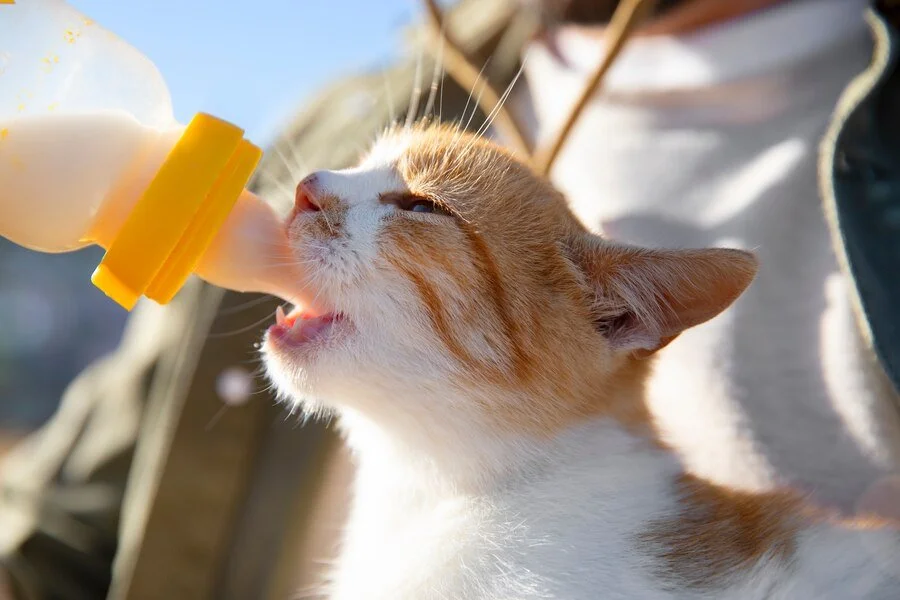Hydration and Urinary Health: Why Water Matters for Cats
Last Updated 12 October 2024
Water is essential for life, and this holds true for our feline companions as well. Proper hydration plays a crucial role in maintaining overall health in cats, with particular importance for their urinary system. This article explores the intricate relationship between hydration and urinary health in cats, highlighting why adequate water intake is vital for preventing common urinary issues and promoting optimal well-being in our feline friends.
The Feline Urinary System: A Delicate Balance
The feline urinary system is a complex network of organs and structures designed to filter waste products from the blood, regulate fluid balance, and eliminate toxins from the body. This system includes the kidneys, ureters, bladder, and urethra, each playing a vital role in maintaining urinary health.
Cats have evolved to concentrate their urine efficiently, a trait that stems from their desert-dwelling ancestors. While this ability helped wild cats survive in arid environments, it can pose challenges for domestic cats, particularly those on dry food diets. Highly concentrated urine can increase the risk of urinary tract issues, including:
Formation of crystals and stones
Urinary tract infections
Feline idiopathic cystitis (FIC)
Urethral obstruction, especially in male cats
Adequate hydration is crucial for diluting urine and reducing these risks. Research has shown that increasing water intake can significantly lower the concentration of minerals and other substances in the urine, thereby decreasing the likelihood of crystal and stone formation.
The Role of Water in Feline Urinary Health
Water plays a multifaceted role in maintaining feline urinary health:
Urine Dilution: Increased water intake leads to more dilute urine, which helps prevent the formation of crystals and stones.
Toxin Elimination: Proper hydration ensures efficient flushing of toxins and waste products from the body.
Kidney Function: Adequate water intake supports optimal kidney function, crucial for filtering blood and producing urine.
Bladder Health: Regular urination, facilitated by good hydration, helps flush out bacteria and reduces the risk of urinary tract infections.
Urethral Health: Well-hydrated cats are less likely to develop urethral plugs, a potentially life-threatening condition in male cats.
Studies have demonstrated that cats with increased water intake have a lower risk of developing feline lower urinary tract disease (FLUTD). This underscores the importance of encouraging proper hydration in cats, especially those prone to urinary issues.
Signs of Dehydration and Urinary Issues in Cats
Recognising the signs of dehydration and urinary problems is crucial for early intervention. Common indicators include:
Dehydration Signs
Sunken eyes
Dry, tacky gums
Decreased skin elasticity
Lethargy
Loss of appetite
Urinary Issue Signs
Frequent trips to the litter box
Straining to urinate
Blood in urine
Urinating outside the litter box
Excessive licking of the genital area
It's important to note that cats are adept at hiding signs of illness, so these symptoms may not always be obvious. Regular veterinary check-ups, including urinalysis, can help detect potential issues early.
Strategies to Increase Water Intake in Cats
Encouraging cats to drink more water can be challenging, but several strategies can help:
Provide Fresh, Clean Water: Ensure water bowls are cleaned daily and filled with fresh water.
Multiple Water Sources: Place water bowls in various locations around the house.
Running Water: Many cats prefer moving water. Consider a cat water fountain.
Wet Food Diet: Canned food contains significantly more moisture than dry kibble.
Add Water to Dry Food: If transitioning to wet food isn't feasible, try adding water to dry kibble.
Flavoured Water: Some cats may be enticed by water flavoured with low-sodium chicken broth or tuna juice.
Ice Cubes: Some cats enjoy playing with and licking ice cubes, increasing water intake.
Proper Bowl Placement: Keep water bowls away from litter boxes and in quiet areas.
Research has shown that cats offered nutrient-enriched water supplements tend to increase their overall fluid intake, potentially benefiting urinary health.
The Impact of Diet on Hydration and Urinary Health
Diet plays a significant role in feline hydration and urinary health. Cats on dry food diets typically have more concentrated urine compared to those on wet food diets. This is due to the vast difference in moisture content – dry food contains about 10% moisture, while wet food can contain up to 80% moisture.
A study published in the Journal of Feline Medicine and Surgery found that cats fed a wet diet had significantly lower urine specific gravity (a measure of urine concentration) compared to those on a dry diet. This suggests that wet food diets can contribute to better hydration and potentially reduce the risk of urinary issues.
However, it's important to note that diet alone isn't a panacea for urinary health. The overall nutrient composition, including mineral content and pH-modifying ingredients, also plays a crucial role in maintaining urinary health. Specialised urinary diets, formulated to promote optimal urinary pH and mineral balance, may be recommended for cats with a history of urinary issues.
Conclusion
The importance of proper hydration for feline urinary health cannot be overstated. By understanding the crucial role water plays in maintaining a healthy urinary system, cat owners can take proactive steps to ensure their feline companions stay well-hydrated and reduce the risk of common urinary issues.



